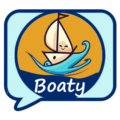Boating in Germany: A Matter of Trust and Safety
Germany is not only known for its efficiency on land it applies the same precision and regulation to its waterways. With more than 7,000 kilometers of navigable rivers, lakes, and coastal regions, the country has developed a robust safety ecosystem to protect everyone on the water.
Whether you’re a tourist renting a boat, a shipping company crossing the North Sea, or a local enjoying a weekend sail, maritime safety affects you. Here’s how Germany makes sure that sailing remains a secure and enjoyable experience for all.
The Key Institutions Ensuring Boat Safety in Germany
1. Wasserschutzpolizei – The Water Police Force
The Wasserschutzpolizei, or Water Protection Police, is the first line of defense on Germany’s waterways. Operating under state police authorities, these officers:
- Patrol major rivers, lakes, and harbors
- Enforce traffic regulations and safety rules
- Inspect vessels for compliance with legal standards
- Control pollution and environmental violations
- Intervene in case of accidents, collisions, or emergencies
They are equipped with fast patrol boats and trained in both maritime law and rescue operations, often working hand-in-hand with other agencies.
Did you know? In busy harbors like Hamburg or Cologne, the Wasserschutzpolizei can conduct dozens of inspections per day.
2. The DGzRS – Germany’s Sea Rescue Heroes
The Deutsche Gesellschaft zur Rettung Schiffbrüchiger (DGzRS) is Germany’s voluntary, donation-funded sea rescue organization, operating mainly in the North and Baltic Seas.
- Over 1,000 volunteers and professionals man rescue cruisers across 55 stations
- They respond to over 2,000 emergency calls annually
- Their fleet includes fast, modern lifeboats equipped for harsh weather
The DGzRS plays a critical role, especially for leisure boating accidents, engine failures, or sudden storms offering life-saving assistance 365 days a year.
Fun fact: The DGzRS has saved over 85,000 lives since its founding in 1865.
3. Private Security Firms on High-Value Vessels
While not common for small recreational boats, private maritime security is sometimes employed by:
- Shipping companies
- Luxury yacht owners
- Event organizers on water
These firms monitor access to vessels, implement surveillance systems, and even train crew on security protocols. In high-traffic marinas or large events, they act as a preventive safety layer.
Legal Framework: What Boaters Must Comply With
Boating in Germany involves a mix of national and international maritime laws, including:
- Schifffahrtsrecht (Shipping Law)
- SeeSchStrO (Sea Shipping Traffic Regulations)
- Binnenschifffahrtsstraßen-Ordnung (for inland waterways)
- EU/IMO standards for safety, emissions, and crew certification
Recreational users are also expected to:
- Possess appropriate licenses (e.g., Sportbootführerschein)
- Carry onboard documents and safety equipment
- Obey speed limits and right-of-way rules
- Equip their boats with life jackets, fire extinguishers, flares, and radios
Failure to comply can lead to fines, confiscation of the vessel, or, worse, endangerment of life.
What About Tourists or Renters?
If you’re renting a boat through Boaty, we make sure everything is in line with local laws:
- All our boats are certified and regularly inspected
- Safety equipment is included
- We partner with experienced captains or guide renters on what licenses are required
- We monitor weather and safety alerts for every region we operate in
Boaty is designed to give both freedom and peace of mind.
Germany’s Approach to Environmental Safety
Maritime safety in Germany isn’t just about human lives it’s also about protecting marine ecosystems. Strict rules are in place to:
- Prevent fuel or oil discharge
- Minimize plastic and trash pollution
- Reduce emissions through eco-friendly engines
- Limit boat access to fragile zones (e.g., nature reserves)
Police and environmental agencies collaborate to monitor and fine violations. Boaty supports these efforts by favoring eco-certified boats and educating our clients on responsible boating.
Final Checklist: Boating Safely in Germany
Before you cast off, make sure to:
- ✅ Know the rules of the waterway you’re in (inland vs. coastal)
- ✅ Check weather conditions
- ✅ Have all required licenses and documents
- ✅ Perform a safety check on equipment
- ✅ Know emergency numbers: 112 and DGzRS
Boaty’s Commitment to Safety
Are you ready to explore Germany’s waters securely ?
At Boaty, safety is not an add-on it’s a core value. We ensure every boat listed meets national safety standards. Whether you’re a local or an international visitor, we’ve built our platform to make your boating experience safe, transparent, and enjoyable.
